The year 2024-25 has ushered in two powerful waves – Donald Trump’s tariff war and an intensifying anti immigration movement in Europe, particularly against Muslims.
Across the continent, immigration and asylum policies have taken a sharp turn, with governments tightening restrictions and ramping up deportations particularly – Muslims, who face increasing scrutiny, not just from political authorities but also from a rising tide of nationalist sentiment.
These policy shifts have ignited global debates over human rights, cultural integration, and national security. Several European nations are actively enforcing deportation measures targeting individuals from Muslim-majority countries, especially those whose asylum claims have been denied or who are deemed threats to public safety. Meanwhile, others have adopted a more indirect approach, making life increasingly difficult for communities through policies that limit access to essential services or create hostile living conditions that encourage voluntary departure.
The motivations behind these actions vary – from economic pressures and populist political agendas to deep-seated concerns over national security and integration challenges. What remains clear, however, is that Europe’s migration crackdown is gaining momentum, paralleling the highly publicized anti-immigration stance of Donald Trump in the U.S.
Trump’s Crackdown
For months now, U.S. President Donald Trump’s administration has spearheaded a well-publicized migration crackdown. The Department of Homeland Security (DHS) and Immigration and Customs Enforcement (ICE) have turned deportations into a media spectacle – broadcasting videos of chained deportees and publishing their names to instill fear.
More recently, the Trump administration has expanded its deportation efforts to include foreign nationals with legal status in the U.S., including academics and professionals. The president has pledged to deport 11 million people, more than double the number removed under President Joe Biden and surpassing even Barack Obama’s two terms, during which 5.3 million people were deported.
While much of the world’s attention remains fixated on Trump’s aggressive anti-migration policies, Europe has been quietly implementing its own ruthless crackdown, one that is less visible yet equally severe.
Europe’s Silent Yet Ruthless Crackdown
In the first nine months of 2024, EU member states issued 327,880 expulsion orders, forcibly removing 27,740 people between July and September alone. The deportations have accelerated as the European Union enforces the new Pact on Migration and Asylum, which was passed in December 2023 and came into effect in June 2024.
Under this pact, EU nations are fast-tracking removals, expanding detention centers, and strengthening cooperation with third countries to facilitate deportations. However, this is not just about EU member states.
The European Union is also turning Balkan countries (those aspiring to join the EU) into border zones, pressuring them into enforcing strict migration controls as part of their accession requirements. Unlike EU members, these Balkan states had no say in shaping the migration pact yet are forced to comply under what many see as modern-day colonial blackmail.
At the December 2024 EU-Western Balkans Summit, the EU made its expectations clear –
“We need to strengthen our cooperation and strategic partnerships in migration management, which is a shared challenge and responsibility and a key priority.”
This aligns with the EU’s broader strategy of externalizing migration control, reinforcing its borders while shifting responsibility for human rights violations onto non-EU nations. Central to this approach is the establishment of ‘return hubs’ – facilities near or beyond EU borders designed to warehouse unwanted migrants.
European Commission President Ursula von der Leyen has been a vocal advocate of this model, which is already in motion. Migrants are being sent to the Balkans, Turkey, and North Africa, with Frontex (the EU’s border agency) and the International Organization for Migration (IOM) playing key roles in these removals.

Croatia. The EU’s Migration Gatekeeper
Croatia, an EU member state has emerged as a key enforcer of the EU’s migration regime. Over the years, Croatian authorities have normalized pushbacks, leading to deaths, injuries, and severe human rights violations. Rather than addressing these issues, the EU rewarded Croatia, along with Bulgaria and Romania, by granting them Schengen membership, allowing for free movement within the bloc.
Meanwhile, EU states have strengthened readmission agreements, bilateral deals that allow deportation to a migrant’s country of origin or transit. As a result, the Balkans have effectively become a dumping ground for migrants that the EU seeks to expel.
Since 2020, Croatian authorities have remained tight-lipped about migration control reports. However, in January 2024, Minister of Interior Davor Bozinović revealed that border police had prevented 71,000 “illegal entries” into Croatia.
In 2023 alone, Croatian authorities pushed back 4,265 people into Bosnia, which—thanks to EU financial assistance—then deported 893 migrants to their home countries. Additionally, 96 migrants left through the IOM’s controversial “voluntary return” program, which scholars have described as a disguised deportation scheme.
The implementation of the EU’s new migration pact will likely intensify the brutality faced by asylum seekers attempting to enter Croatia, and countries like Bosnia and Herzegovina, Serbia, Albania, and North Macedonia.
This pact allocates millions of euros to support policies and technologies that will directly fuel the dehumanization of migrants. The increased funding will empower Frontex, the European border and coast guard agency, which has long been accused of complicity in illegal pushbacks and human rights abuses. Frontex’s annual budget for deportation-related expenses alone has ballooned to €18 million ($19.5 million), underscoring the EU’s growing focus on border enforcement over humanitarian concerns.

10 Countries Leading the Way in Controversial Deportation Policies
1) Germany: Known for its open-door policy following the 2015 migrant crisis, Germany has taken a dramatic shift toward tightening its immigration controls.
In September 2024, Germany resumed deportations to Afghanistan, sending 28 Afghan nationals back to a country still under Taliban rule. This marked the first deportation to Afghanistan since the Taliban regained control in 2021.
Germany’s government has focused on accelerating deportations for individuals convicted of crimes or deemed to be threats to public safety. To support these efforts, €1 billion was allocated in 2024 to streamline the deportation process, increase detention capacity, and enhance cooperation with countries of origin.
The aim is to deport 100,000 rejected asylum seekers by the end of 2025. While the government defends these measures as essential for public safety and maintaining trust in the immigration system, critics argue that deportations to volatile regions like Afghanistan violate international human rights standards.
Organizations like Amnesty International caution that such blanket deportation policies fail to consider individual circumstances, raising serious concerns about the potential risks asylum seekers face upon return.
Germany’s policy shift mirrors wider European trends, as more nations adopt harsher measures to manage migration flows.
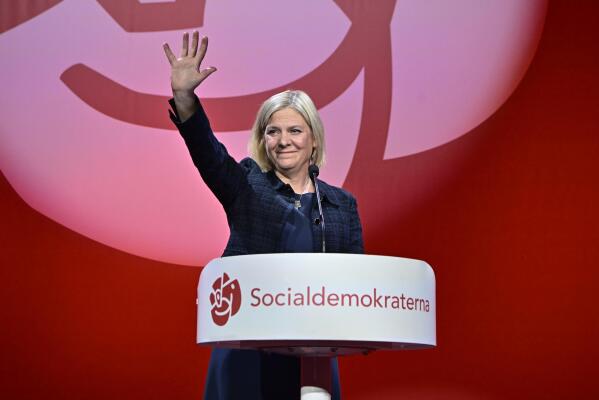
2) Sweden: Once hailed as a model of progressive immigration policy, Sweden has surprised many in 2024 with its hardline approach to deportations.
Responding to rising political pressure and increasing concerns over integration, the Swedish government has aggressively pursued the deportation of rejected asylum seekers, primarily from Muslim-majority countries. Between January and November 2024, Sweden expelled 15,000 individuals, a sharp increase from the previous year. This includes asylum seekers from Syria, Afghanistan, and Iraq.
The government argues that these measures are necessary to address growing public unrest, economic strain, and integration challenges. The policy shift also aligns with a €200 million allocation to strengthen border controls and expedite deportations.
Prime Minister Ulf Kristersson has emphasized the importance of national cohesion, citing high-profile incidents linked to migration as justification for the stricter policies. However, critics warn that Sweden risks tarnishing its reputation as a haven for those fleeing persecution.
Human rights organizations argue the psychological toll on families torn apart by deportations and the growing concerns about racial profiling. Despite the controversy, Sweden’s approach has found resonance in neighboring countries, reflecting a regional shift toward tougher immigration policies.
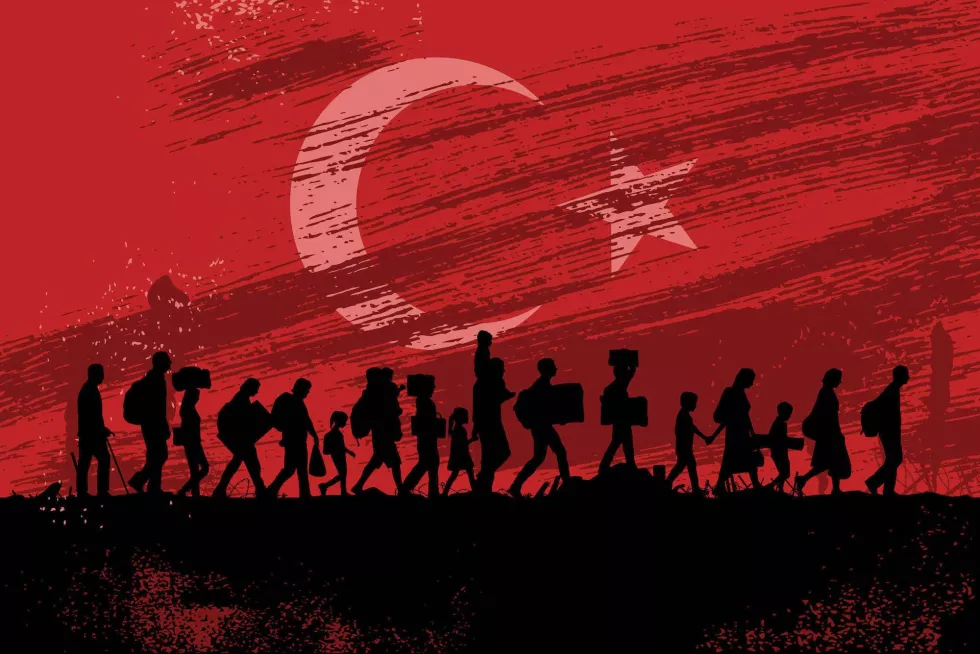
3) Turkey – a nation positioned at the crossroads of Europe and Asia, has played a pivotal role in the migration crisis. However, its recent actions have sparked controversy, especially regarding the deportation of vulnerable groups such as Uyghur Muslims and Syrian refugees.
Turkey has significantly altered its stance in 2024.Once known for its open-door policy, Reports from human rights organizations estimate that over 100 Uyghurs have been forcibly removed this year alone. Despite Turkey’s past vocal support for Uyghur rights, many of these deportations have been carried out under the pretext of national security. Activists claim that Uyghurs sent to third countries often find themselves eventually returned to China, raising serious human rights concerns.
Additionally, Turkey has intensified its crackdown on undocumented migrants and asylum seekers. Between January and October 2024, Turkish authorities apprehended over 160,000 migrants, deporting thousands back to Afghanistan, Syria, and other conflict-ridden nations. This aligns with Turkey’s 2021 repatriation agreement with the Taliban, which facilitates the return of Afghan nationals under specific conditions. Critics argue that such deportations violate international asylum laws, putting returnees at grave risk.
President Recep Tayyip Erdoğan defends these policies, citing the need to preserve Turkey’s economic stability and social cohesion amid rising anti-migrant sentiment. In response, the government has allocated an additional $150 million this year to enhance border security and expand detention facilities. Turkey’s shifting migration policies are not only reshaping its domestic landscape but also influencing migration strategies across Europe and beyond.
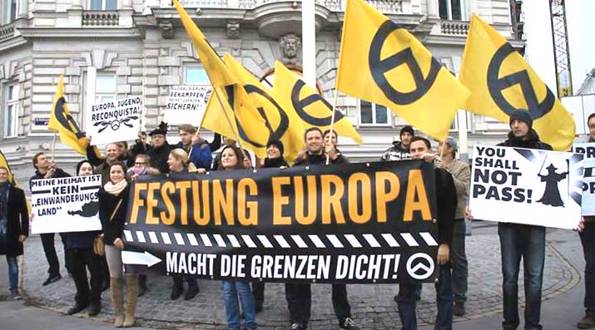
4. The European Union – The European Union’s stance on migration in 2024 has grown increasingly hardline, marking a significant departure from its traditional humanitarian commitments. A coalition of 17 EU member states has spearheaded a paradigm shift in deportation practices, pushing for stricter measures to expedite removals.
In October 2024 alone, EU nations collectively deported 25,000 rejected asylum seekers, many from Muslim-majority countries like Afghanistan, Syria, and Somalia. The bloc has committed 2.5 billion euros to enhance border security, speed up asylum reviews, and strengthen return agreements with third countries. Notably, controversial deals with Libya and Tunisia have drawn widespread criticism, as these nations have faced accusations of human rights abuses against migrants.
Rising anti-immigrant sentiment, economic pressures, and concerns over integration have fueled this shift. Countries like Austria, Hungary, and Italy have been at the forefront, advocating for policies aimed at protecting what they describe as European identity. This has resulted in the establishment of detention centers and an expansion of mass deportations—practices that human rights organizations argue violate international standards.
5. United States – often celebrated as a land of opportunity and cultural melting pot, is facing increasing criticism over its immigration policies, especially those affecting Muslim migrants. In 2024-25, the U.S. has continued to enforce stringent immigration measures, which are rooted in a complex mix of national security concerns, political pressure, and ongoing debates about identity and inclusivity.
6. Australia – an island nation surrounded by water, has long maintained one of the strictest immigration policies in the world.
In 2024, this hardline stance continues, with particularly severe consequences for Muslim migrants and asylum seekers. Australia’s offshore detention policy, which remains a cornerstone of its immigration system, has resulted in over 1,200 individuals being held in detention facilities on Nauru and in Papua New Guinea. Many of these detainees come from Muslim-majority nations like Afghanistan, Iran, and Sri Lanka.
To support these facilities and enforce its “Stop the Boats” policy, the Australian government has allocated 4.5 billion Australian dollars (about 2.9 billion USD) in 2024. This funding maintains offshore detention and supports deportations.
The debate around the repatriation of Australian women and children from Syrian refugee camps has intensified. Over 60 individuals, many of whom have connections to former ISIS members, are awaiting decisions about their fate. Security experts urge caution, emphasizing the potential risks of reintegrating individuals with extremist affiliations. Meanwhile, human rights organizations are calling for action to prioritize the welfare of children and bring them back swiftly.
In 2024, Australia has seen a sharp increase in deportations, with over 3,000 rejected asylum seekers being removed, many of whom are sent back to volatile regions. This policy reflects Australia’s broader emphasis on protecting its borders, but it has also faced significant criticism for its lack of transparency and fairness in asylum processing. As global migration trends shift towards stricter policies, Australia’s immigration system remains a key player, shaping discussions on border integrity versus humanitarian obligations.

7. France – a nation that takes great pride in its commitment to secularism and universal values, has found itself struggling with the complex intersection of immigration and national identity.
In 2024, France has adopted one of Europe’s most stringent approaches to immigration, with Muslim migrants often at the center of these policies. The government has ramped up deportations, targeting individuals deemed a threat to national security. Over 14,000 people were deported in 2024, with 3,500 of those being Muslims accused of radicalization or criminal activity.
This shift aligns with France’s 800 million euro investment in border security and the expedited processing of deportations. High-profile cases, such as the expulsion of imams accused of promoting extremist views, underscore the government’s commitment to safeguarding public order.
France’s controversial separatism law, enacted in 2021, continues to influence immigration policies. It allows authorities to monitor and shut down organizations suspected of undermining French values, often targeting Muslim associations.
Critics argue that these policies disproportionately affect Muslims, further alienating the 5.4 million-strong Muslim community, the largest in Western Europe.
Activists and human rights groups have warned that these measures are eroding trust and fueling resentment, particularly among second-generation immigrants.
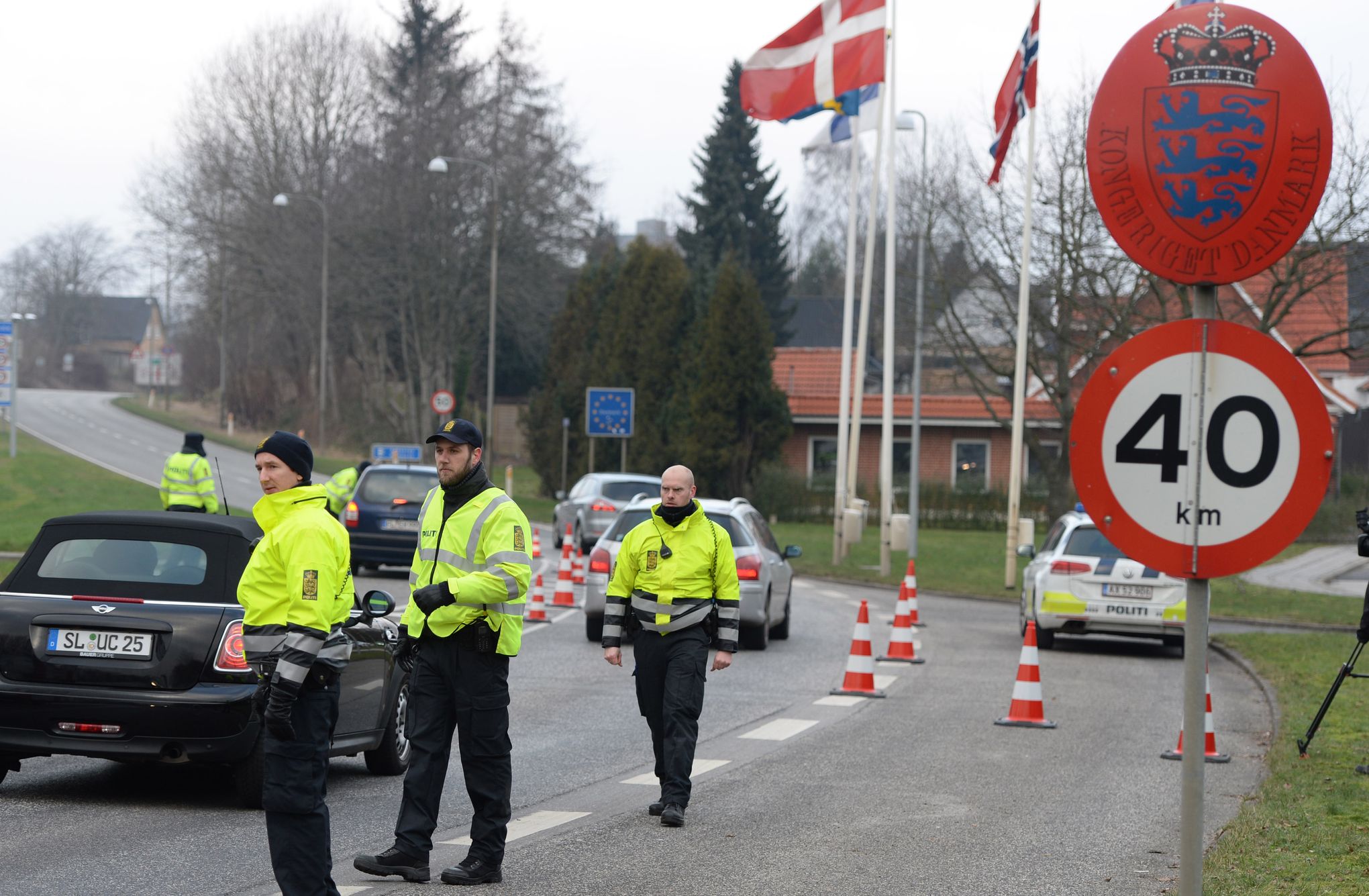
8. Denmark, often celebrated as one of the happiest countries in the world, has adopted some of the harshest immigration policies in 2024, particularly impacting Muslim migrants. Known for its robust social welfare system and progressive values, Denmark’s stance on immigration has become a surprising point of contention.
The country’s “zero asylum” policy, introduced in 2021, aims to eliminate new asylum seekers entirely. The government has forged controversial agreements with Rwanda and other third countries to transfer asylum applicants for processing.
In 2024 alone, more than 1,700 individuals – many from Muslim-majority nations like Syria and Afghanistan, were sent to such facilities. Critics argue that these policies violate international asylum rights, but the Danish government insists that they are necessary to maintain societal stability.
This year, Denmark deported 6,000 rejected asylum seekers, a 40% increase compared to 2023. The Danish government allocated 450 million euros to bolster border controls and expedite deportation processes.
Authorities are also intensifying their crackdown on Islamic organizations, with several closures in 2024, citing accusations of promoting extremism. Prime Minister Mette Frederiksen has defended these measures, claiming that they are essential for preserving Denmark’s cultural identity. However, human rights organizations have raised concerns that these actions could deepen divisions and alienate migrant communities.
9. Austria: a small landlocked country at the crossroads of major migration routes, is one of Europe’s focal points in the ongoing migration crisis. With a population of just nine million, Austria has implemented some of the continent’s most restrictive deportation policies in 2024.
The government argues that it has reached its capacity to accommodate new arrivals, particularly from Muslim-majority countries. In 2024, Austria deported over 10,000 rejected asylum seekers, the majority of whom came from Afghanistan, Syria, and Iraq.
The government has allocated €600 million to expand detention facilities and enhance cooperation with countries of origin to ensure efficient deportations. A controversial law passed in 2023 allows for deportations even to conflict zones, provided the government deems the region partially safe.
Chancellor Karl Nehammer has emphasized that these measures are essential for safeguarding Austria’s national security and social cohesion. Public support for these tough immigration policies is high, with 64% of Austrians backing stricter immigration laws, according to a 2024 poll.
However, human rights groups argue that Austria’s approach undermines the rights of asylum seekers, especially when deportees are sent back to dangerous conditions in their home countries. Muslims, who make up roughly 8% of Austria’s population, increasingly feel marginalized.
Surveillance of Islamic organizations and the closure of mosques have heightened tensions within the community. Critics warn that these policies could worsen divisions and hinder successful integration. Austria’s stance reflects broader European trends, where the priority is often on security rather than humanitarian concerns.
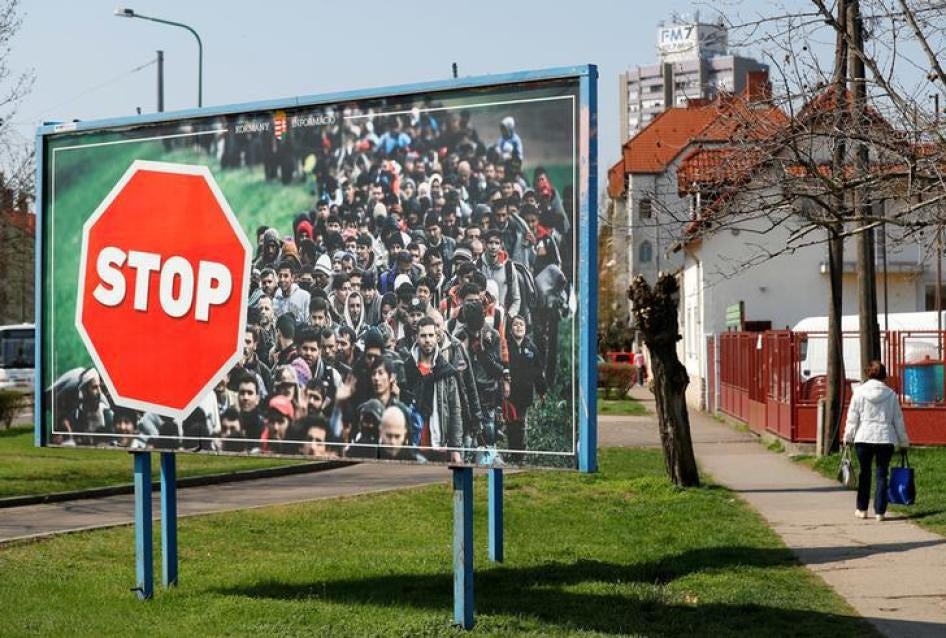
10 Hungary: has become a symbol of anti-immigration sentiment in Europe. With one of the smallest Muslim populations in Europe, Hungary has implemented some of the harshest anti-immigration policies in 2024.
The country’s southern border, reinforced with razor wire fences and surveillance, epitomizes its hardline approach to migration. In 2024, Hungary deported over 5,000 asylum seekers, many from Syria, Afghanistan, and Iraq. The government has also criminalized the act of assisting undocumented migrants, imposing fines and prison sentences on those who provide aid.
Orbán’s administration justifies these measures as necessary for protecting Hungary’s Christian heritage and national security. The government has invested $1.1 billion in 2024 to strengthen border controls and enhance deportation logistics. Critics argue that Hungary’s policies violate EU asylum laws and international human rights standards, particularly since deportees are often sent back to unsafe regions.
Hungary’s approach has been widely condemned, with the European Court of Justice challenging the legality of Hungary’s pushbacks and detention practices. Nonetheless, Orbán’s policies continue to enjoy strong support domestically, with over 70% of Hungarians favoring stricter immigration controls.


